Joy Harjo
The Whole of Time
“Though we have instructions and a map buried in our hearts when we enter this world,” the extraordinary Joy Harjo has written, “nothing quite prepares us for the abrupt shift to the breathing realm.” She is a saxophone player and performer, a visual artist, a member of the Muscogee Creek Nation, and the 23rd Poet Laureate of the United States. She opens up with Krista about her life, dreaming as a way of relating to time and place, and the story matrix that connects us all.
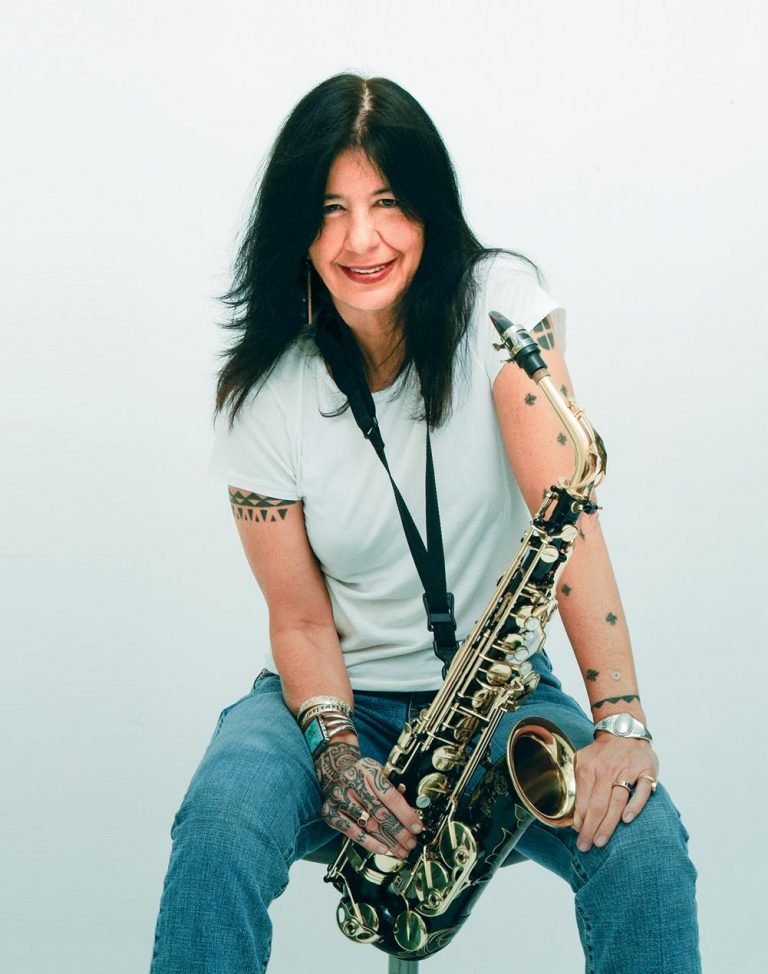
Photo by Paul Abdoo. Courtesy of Joy Harjo. © All Rights Reserved.
Guest
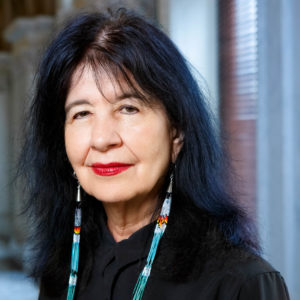
Joy Harjo is a member of the Muscogee Creek Nation and the 23rd Poet Laureate of the United States. She is the author of 10 books of poetry, including An American Sunrise, Conflict Resolution for Holy Beings, and She Had Some Horses, and the memoirs Crazy Brave and Poet Warrior. Her most recent poetry collection is Weaving Sundown in a Scarlet Light: Fifty Poems for Fifty Years. She’s also produced several award-winning albums of music, including her most recent, I Pray for My Enemies.
Transcript
Krista Tippett, host: Joy Harjo is a saxophone player and performer, a visual artist, a member of the Muscogee Creek Nation, and 23rd Poet Laureate of the United States. She’s written, “Though we have instructions and a map buried in our hearts when we enter this world, nothing quite prepares us for the abrupt shift to the breathing realm.” I’m grateful for this hour she gave us to walk alongside her in the breathing realm, and to experience what she knows about how to see and to live.
[“Seven League Boots” by Zoë Keating]
Joy Harjo: I’ll be in a car or a bus or a van or whatever, looking at the houses and the windows and all the storefronts, and thinking about all the different realms, all the different story realms, and how many — every place, every window, every doorway is an opening to a life — a whole different life, a whole series of stories.
Tippett: I’m Krista Tippett, and this is On Being.
[music: “Seven League Boots” by Zoë Keating]
Joy Harjo is the celebrated author of nine books of poetry and the memoir Crazy Brave. She edited the collection of Native nations poetry, When the Light of the World Was Subdued, Our Songs Came Through. And her most recent album is I Pray for My Enemies. Joy Harjo was born and lives in Tulsa, Oklahoma, where, six generations ago, her ancestors were forcibly relocated from their homelands in Alabama.
[music: “Seven League Boots” by Zoë Keating]
So I actually started reading Crazy Brave a few months ago, during the pandemic. And I kind of read it like poetry. I read it a little bit at a time and savored it a bit at a time, which was a wonderful way to read it. And in preparing to be with you, I looked at some other interviews you’ve done, and I really want to draw into your sensibility, your gifts of seeing and knowing, which includes vision and dreams and memories that are not contained in this lifetime. And I felt like people don’t really go there with you, although you go there in your writing. For example, you’ve written that you relived your own birth in a vision on a mountainside in Colorado, I think around the age of 40. And I wondered, you know, normally a question will be, to somebody, “Where did you grow up?” [laughs] — which we’ll talk about that, too — but I’d love to hear about what you saw about your own birth. Start there.
Harjo: Well, did I write that in — I actually put that in Crazy Brave? [laughs]
Tippett: [laughs] You did. You did.
Harjo: Well, I guess I opened myself up for that, because I try to embed things so that I don’t — [laughs] you know, so that I don’t appear crazy, because these things are —
Tippett: Well, see, I don’t —
Harjo: But they’re just as real.
Tippett: But you’re not crazy. I think that’s why people don’t talk about it, because it’s hard to talk about this way of seeing and knowing, right? So I just want to see if we can do that, with the dignity that it possesses in your writing, for sure. I mean, here’s some things you wrote about that. You said, “Though I was reluctant to be born, I was attracted by the music. I had plans… I did not want to leave mystery, yet I was ever curious and ready to take my place in the story.” I’m just so fascinated that you had those apprehensions.
Harjo: Yes, what happened — so I’m a great-grandmother now. I was a grandmother in my 30s and a teenage mother. And what that’s given me is a kind of a broader sense of the story field. And I have certainly — yes, I’ve been at the birth of my children, [laughs] but I’ve always tried to get there when a grandchild is being born. And what I’ve noticed — and I’ve noticed this with newborn infants — is they still remember. They’re still carrying memories and stories. They still know things. Even when they’re young — I remember my daughter skipping up to me when she was three. She used to say, “When I used to be a boy” —
Tippett: Yeah.
Harjo: “When I used to be a boy,” and would just cry, if I wanted to take her to the girls’ section for clothes. And I have a granddaughter who’s come up to me and said, “Well, we used to know each other. When we knew each other …” da-da-da-da-da. And it’s obvious that she and I have an old connection.
So when I was an infant, I used to travel. My spirit would leave my body. Well, we can say we do that when we dream. Some dreams are “I ate too much pizza” or “I ate pizza when I shouldn’t” dreams. Others have a different cast to them, and others we know, instinctually, to pay attention. Now, what happens is, we don’t live in a society, generally, that supports dreams as knowledge. And we’re not living in a place like that. But think about it — about half of our lives, we’re out gathering information that we may not bring forth consciously, and for some of us, it’s like it’s a library that we go to when we need to know something. It works in that way.
Tippett: Yeah, and children do come out with things like that, and there’s a reality to it [laughs] that adults don’t know what to do with. Have you ever heard of — there’s this — it made me think of this story that occurs both in Judaism and Islam, that before each of us is born, the angel Gabriel kisses each child on the forehead; and they are born, and then they begin to forget it all. And I was thinking of that story — I mean, one way to talk about that thing that we observe that you describe so richly.
Harjo: Yes, it’s like we go into the place of forgetfulness because to remember everything would be — we have enough burdens here. You know, many of them have, certainly have — they’re tethered elsewhere. But I think it can be too much to know all of that, because we’re here to, you know, see what we will do without that.
You know, Crazy Brave went through several versions. I was 14 years late turning it into the publisher, which is not like me. I get my work in on time, or I wouldn’t have a career. And one of the versions was like twice as many pages as the final version, and that’s because I cut all the dreams out.
Tippett: Really?
Harjo: Pretty much, yes. And I was trying to figure out how to embed them. My new memoir, Poet Warrior, which will be out in September, it’s similar but different. And it certainly — it’s coming from a different point of view, from being much older and looking back, because when we come through that doorway, when we take on breath or inspire spirit, we take on the spirit of here, and we’re young, we are close to that door of knowing everything — you know, the door of eternity. And we’re so creative. And artists of any sort are always trying to replicate or be in that kind of space. And then, when you get older — when you cross the 50-year mark, you know [laughs] you’re starting to head out the other way. And then, when you get to my age, you realize it’s — it opens up — it’s not like — maybe some people become children again, but what it does is, you’re once again closer to that kind of knowing and awareness.
Tippett: Yes. Yes. Yeah, that’s another thing we don’t really know how to talk about. It’s fascinating, isn’t it.
Harjo: Yes, and it’s — sometimes it’s called wisdom.
Tippett: Right.
Harjo: That’s what — and it is, because it’s wisdom beyond what our mentality, our Earth mental minds, our Earth mentality — it’s much larger and more immense than Earth mentality.
Tippett: Yeah. So Joy, I grew up in Oklahoma.
Harjo: Oh, really?
Tippett: Yeah. I grew up in Shawnee.
Harjo: Oh, OK.
Tippett: And so, for me, that’s a big point of connection in starting to read you — although, you know, to be honest — I mean, you know, you mentioned the “story field” a minute ago, and you also use this language I love, of the “story matrix” that connects all of us. But when I think about the Oklahoma — the sense of Oklahoma you had and the sense of Oklahoma that I had, it’s almost more like parallel universes, in terms of — I mean, I think we’re in this time, and I am personally part of this, in this time of waking up to all the stories I didn’t learn, growing up, right — the stories of the place I was in. I mean, your — the place of your childhood and the places of my childhood had this completely different realm of story and song and spirit, you know? What you describe is a different cartography. I mean, I grew up in Shawnee; next door was Tecumseh; we’re in Pottawatomie County, right? Seminole is a place I know.
Harjo: [laughs] Right, yeah.
Tippett: Right? Muscogee is a place I know. And what kind of puzzles me at this stage in my life and at this stage in our waking up as a civilization, which I do think is happening, however fitfully, is that the place names were retained, right? I wonder about that, why they retained the place names when all the stories and the meanings and the significance were removed, for people growing up there who were not tribal. And so — I don’t know; I wanted to put that out there as we begin, as something that’s very much on my heart, as I read you. And I feel like I’m learning about the place I came from, in a way I’ve longed to but was certainly not offered to me in my official education, right? — [laughs] in school.
Harjo: Yes, in a more rural Oklahoma. Yeah, there are many different realities. I think about all of those different realities — you know, when you come into — especially when you come into a new town. I travel a lot, and I’ll be in a car or a bus or a van or whatever, looking at the houses and the windows and all the storefronts, and thinking about all the different realms, all the different story realms and how many — every place, every window, every doorway is an opening to a life, a whole different life, a whole series of stories. And it’s multiplied hundreds and thousands of times. And some don’t overlap at all. Some are in their very private universes; other universes are more expansive.
Tippett: Yeah. It’s amazing to me, to have lived my first 18 years in a place and have all of those names carry the experience that they did, but, you know, not to have known that when I say “Potawatomi,” that’s a nation; that Muscogee — that you are from the Muscogee Creek Nation; who Tecumseh was — that he was of the Shawnee tribe. Even when you describe Tulsa, where you grew up, just this is not a way I would ever have known Tulsa: “a Creek Indian town established on the Arkansas River, after my father’s people were forcibly removed from their homes in the South in the mid-1800s.”
Harjo: Yeah, and there’s different universes. And what happens in this country is that Natives are — our stories, our presence has basically been disappeared from the American story because if it’s true — if it’s true that we’re still here, and if it’s true that what did happen was, you know, was grand theft and massacre — then there’s something inherently broken with the story that needs to be repaired.
The other thing, too, is that we are here. And yet, people expect us to be in our traditional outfits, if we’re recognized. They don’t recognize us unless we’re mascots or we’re wearing our traditional outfits.
Tippett: You know, you also refer a number of times in your writing to the “easy and familiar humor of Oklahoma Indians that others would recognize.” Tell me about that.
Harjo: Oh man, I wrote a whole chapter of it [laughs] in my — you know, I think it goes with people. It seems to me that the people who have been — are still very close to their collective suffering and removal and so on, one trick of survival is the development of a tremendous sense of humor. And especially — I mean, I’ve been around Natives all over the — [laughs] all over the world, but there’s something about Oklahoma Natives, you know, something about a Southern kind of openness, which makes more holes for laughter to go through, or for the ironic to live. Certainly, maybe just living is ironic, because there’s always dying, [laughs] you know. And a lot of self-deprecation.
Tippett: [laughs] Right. I thought one thing I might do — there are some striking passages that I feel kind of invite someone inside your sense — who you are, and how you hold a sense of that that goes so much farther back than the story matrix that most of — that American culture is aware of, most of the time, or ever — this kind of cosmic sensibility you have.
I don’t see you using the word “spiritual” very often. Is that too narrow a word?
Harjo: I think part of that comes from not wanting to — so many images of Natives are stereotypes. They’re usually around bloodthirsty warriors, or spiritual guardians who know everything and are protective and so on. And certainly, because these lands are inherently Indigenous, there is — you know, ultimately, everything is spiritual. [laughs] Ultimately, everything has a spiritual — is connected, spiritually. But that — I think that — if I think about it, that would be why I try to stay away from that, because one, I don’t want to be interpreted as that kind of figure, necessarily. It’s important that, I think, that everyone realizes that they have a connection with the natural world; it’s not something that just belongs to the Indigenous peoples. We might be closer, because we’ve been here longer, to particular elements of it, but, you know, this is something that is inherently part of the legacy of human beings.
[music: “Night Light” by Blue Dot Sessions]
Tippett: I’m Krista Tippett, and this is On Being, today with musician and U.S. Poet Laureate Joy Harjo.
[music: “Night Light” by Blue Dot Sessions]
Tippett: So your father was a complex character, who you loved, and you kind of lost him through divorce. He wasn’t as present in your life. He was born of tribal leadership — is that right? Osceola, the Seminole warrior, was his uncle? Is that correct? So here’s something you wrote about him: “My father was ephemeral. He was about 10 percent body. The other 90 percent of him was spirit and was unreachable, even to him. This earth can be difficult and jarring. Joy can only be known through despair here.”
“He was about 10 percent body.”
Harjo: I’ve noticed that with people. In another passage, I describe my mother as fire — you know, as somebody who is much more actively engaged with the physicality of being. But my father, my sense of him was that he was overwhelmed with what he knew and what he could not say — a kind of perceptual awareness that he had no place for. What was he going to do with it?
Tippett: Right.
Harjo: He didn’t — his family had been broken. His mother died when he was young. He had a stepmother who came from a totally different sensibility, and life went on. The domestic sphere was uprooted, and then they sent him off to military school, when he was a young man. And he’s so — I just see this deep, deep — a sensual spirituality and knowing, and he didn’t have a path. He had no one to show him how to use those gifts.
Tippett: I’m intrigued by this, and I think about this, too, from a different spiritual tradition, about how somehow, the body — and I want to know if this is what you’re saying — that in some ways we need our bodies — we need to inhabit our bodies more fully, in order to really inhabit our souls. Is that what you’re saying?
Harjo: That could be partly it, and I think of that especially when a lot of it’s — in American education, we’re so influenced by Descartes [laughs] and that system —
Tippett: Yeah, chin up.
Harjo: Yes, or the Puritans, which were part of the origin stream of America, which, you know, the body was something unholy and something to be disregarded and even disciplined — disciplined and disregarded, when the body is really part of an incredible garden. Those are two opposing approaches or universes or realms, and how do you rectify, or how do you even find — is there any kind of path possible between them?
Tippett: Yeah. And is finding that path between them and having them be in interplay with each other part of, I don’t know, the path to wholeness or to healing?
Harjo: Perhaps; I mean, we are right in the middle of it right now, all over the world, in oppositional governments, oppositional ways of thought — you know, one in which women are to be controlled and the body is considered a tempter. Or it’s — you know, it seems like we’re still in that — no matter history and layers of history, and we’re in that — we’re still in that kind of — I don’t want to call it a war, but perhaps it is.
Tippett: Yeah. It was very — it was quite joyous and fascinating to read your writing about your early life, your young adulthood — which had hardship in it; as you said, you were a teenager when you first became a mother — to be reading all of this and to know that your story was going to progress to you becoming Poet Laureate of the United States. [laughs]
Harjo: [laughs] That’s crazy.
Tippett: I mean, there’s this passage I wrote down. I was like, you know — the morning your son was born, his father dropped you off at the hospital and then went to work. And you wrote, “It was still dark as we walked through the cold morning, under oaks that symbolized the stubbornness and endurance of the Cherokee people. They made Tahlequah their capital in the new lands. I looked for handholds in the misty gray sky. I wanted to change everything. I wanted to go back to a place before childhood, before our tribe’s removal to Oklahoma.” And you wrote, “I wanted more, and I didn’t know how to get it.”
Harjo: And I didn’t, at that point. I mean, think about it — we had no money. We had no resources. And I used to walk those streets, wondering. I knew that there was something more, and I had — there was no door — the only thing that kept me sane, I think, was — well, I’m very grounded, for one, [laughs] but — and I have a lot of common sense. I mean, I’m very — I think I’m half mentality — my mind is always working — and then I’m half, you know, creative intuition. And so those places can meet. And maybe thinking about the question earlier, about these oppositional ways of thinking, well, I think they can meet when it comes to creativity, when it comes to making art.
And I think, in the end, that’s what really helped me through, was, you know, developing disciplines of art. I used to draw and make art, and then, when I was a student at University of New Mexico, I got into writing. And it was that discipline of art which gave — you know, visioning is one way that — and the ability to vision and having tools for visioning — helps any of us out of almost impossible situations.
Tippett: Yeah. You also had a very difficult stepfather, a situation in your home when your mother remarried. And — but you — how did you talk about it — you went to the Indian school in Santa Fe. You said you escaped the “winter” of your childhood, in the Indian school in Santa Fe. And that place also gave you — or, I don’t know; you had the arts. But it welcomed that, right, and drew that out of you.
Harjo: Well, one, I was safe. I was in a safe place, away from danger. And two, I was with my community. There were Native students from eighth grade to two years postgraduate, from all over the country, and every one of us had applied to get in with our respective arts. And we were all, too, of a generation. And I think every generation is a kind of person, and every generation has an energy. And we came in with a collective story to tell, and a kind of urgency, too, coming in framed by the Civil Rights Movement and then finding our places, you know, our voices and our place in the American story as Indigenous peoples.
So it wasn’t the usual tale of Indian school, like Carlisle Indian School, which was founded by Mr. Pratt — you know, “we’re gonna kill the Indian, find the human being, and we’re gonna do it through military discipline at Indian school.” It was a very different kind of school. We had some of the best artists — Native artists, predominantly Native artists, and non-Native artists — in the country.
And that was our curriculum, as well as academics, which was — it was all right; it was not the strong point of the school. And yet, we had in place a military system and words like “restriction” and “detail” and those kinds of words and rules. But at the same time, we were given permission to create. And create we did. Our class and our generation really shifted Native art, in the contemporary world art scene.
Tippett: Yeah. I wanted to ask you about something. You wrote about Father John Staudenmaier, who was one of your teachers there. And you said — so you really actually — I mean, as you say, you always painted and drew and made music. And it was really even later than this that you became a poet — that you understood yourself as a poet, I think. But you said he was the first person to talk to you about the soul. And you wrote this intriguing sentence: “He asked me to pay attention to the poetry of the living.” Tell me what that means, what that holds for you, that phrase, “the poetry of the living.”
Harjo: The poetry of the living — well, what is poetry? I think of poetry as a kind of lyricism. I think of poetry as a place beyond words [laughs] that we — you know, the paradox is, we use words to get there.
[music: “Opening Song for the Maker” by Joy Harjo]
Tippett: This is Joy Harjo performing “Opening Song for the Maker,” from her album Winding Through the Milky Way, for which she won a Native American Music Award for Best Female Artist of the Year.
[music: “Opening Song for the Maker” by Joy Harjo]
More with Joy Harjo, after a short break.
[music: “Opening Song for the Maker” by Joy Harjo]
Tippett: I’m Krista Tippett, and this is On Being. Today, we’re in the presence of the extraordinary Joy Harjo. She is a member of the Muscogee Creek Nation and 23rd Poet Laureate of the United States. She’s been a visual artist and musician all of her life and became a poet in her 20s.
It does seem like — it sounds like, when you write poetry, you are receiving and learning as much as you are teaching, or that there’s a revelation, for you, in the act of writing poetry.
Harjo: Yes, I think that’s why I went to it, is because it’s sort of like — unless it’s an epic poem, but even then, it is kind of a pocket. It’s a doorway, a doorway. A poem can be like a pocket that can hold anything, almost anything. You can hold different kinds of time. It can hold grief, it can hold history, and it is often — a poem has come to me or through me, and it’s taught me what I needed to know. One of my most — it was a poem that was used often, was “Fear Song,” or “Fear Poem,” a poem to get rid of fear. And I wrote that — it was one of the earliest poems I wrote, and that’s because I needed it. And so when you’re writing, and I think when you’re creating, too, it’s a large part of that act of writing or — whether it’s music or stories or poetry or drawing, or any of the — it’s — a large part of it is listening.
Tippett: Yeah, and it’s true that our — there’s so much noise. There’s so much noise and kind of clutter, in what we take in now as a matter of routine, minute-to-minute and hour-to-hour. It’s kind of — I think it’s harder to get to that place of listening, just organically clearing some space for listening.
Harjo: It really is; and there’s all kinds — and it’s been programmed that way. You’ll hear a ding. I was in the middle of something, the other day, and I heard a ding on one of my — I try to turn them all off. And I realized I hadn’t caught that one. But it just sets up this — it’s like Pavlov’s dog, this — and it’s shocking. It shocked me, when I realized that here my body was reacting, and that’s not what I wanted to do. I wanted to stay on my track of listening. And it was disturbing to me. And I’m thinking, what is all of this leading to? Why is it necessary? What I usually come down to is, somebody is hungry for money, so if they keep you there with these sounds, if they addict you, then they will have your attention, and your attention means money, for them.
Tippett: But it becomes such a vast web of reality and detail, right, the complexity of what the offerings are, and how they’ve become integrated into our lives.
Harjo: But as you say that, I’m thinking of a dream that I had the other night, with my grandson Chasen, who is a beautiful young man, 6 feet 2, who left Albuquerque, has a job in Roswell, and I love my grandson so much. And he was in my dreams. He’s not always — we were very present with each other in the dream and were talking about — I had a few things to tell him. And we’re standing there, and then I said, “Look.” And we were watching the stream of consciousness — or unconsciousness, or whatever you want to call it — we were watching together how every thought goes into the stream, every thought, every dream, every action. And we were watching the immense stream of all of this and how it was making patterns, and how there were actual patterns and shapes and — you know, it was an immense creative field, but it was beautiful. And it was woven together perfectly, even though you would think that it could be a chaotic mess.
Tippett: Yeah.
Harjo: I’m still thinking about that.
Tippett: Yeah. I’d love to maybe hear some — talk a little bit about your poetry collection An American Sunrise. Would you just tell the story of this volume, this idea?
Harjo: Yes. I had taken a job at University of Tennessee, Knoxville, and — wonderful people; one of the best — you know, I’m still in touch with them there. And I took it for a number of reasons, but one, it was down in our homelands. And my husband, who’s the same tribal nation, same ceremonial ground, we wanted to go see all of these places our families came from. We still knew names of places, stories, and I even found a house that belonged to an uncle of mine, in Columbus, Georgia.
And the book got started because we were preparing to leave to go back to Tulsa, and I was thinking, what do I do with this? We came here looking for our people, looking for the stories for this place that our origin stories have their roots here. Our people’s roots are here in these plants, these kind of plants. And it’s so beautiful, and I can see why sometimes people would say, “Don’t go back, because it’s devastating. It would break your heart.”
And there I’m thinking, we are so excited about going back to Tulsa, going what we call “home.” How can this be? What do I do with this? Because — do with this — with the heartbreak that happened when we were forcibly walked out of our homes at gunpoint, loaded up, and marched across states, across the Mississippi, too. You know, what do I do with this? What do I do with this contradiction? And I was looking out into the trees there, one morning, and the — my spirit says, well, what did you learn here? And that’s how the book came.
Tippett: That you started writing these poems — out of that question?
Harjo: Yes, out of that question.
Tippett: Would you read the first poem, “Break My Heart”?
Harjo: OK, yes, I will. That’s called an “ars poetica,” which is about the art of writing poetry, which is also the art of living. Poetry and living — they’re often the same thing.
OK, “Break My Heart.”
“There are always flowers,
Love cries, or blood.
Someone is always leaving
By exile, death, or heartbreak.
The heart is a fist.
It pockets prayer or holds rage.
It’s a timekeeper.
Music maker, or backstreet truth teller.
Baby, baby, baby
You can’t say what’s been said
Before, though even words
Are creatures of habit.
You cannot force poetry
With a ruler, or jail it at a desk.
Mystery is blind, but wills you
To untie the cloth, in eternity.
Police with their guns
Cannot enter here to move us off our lands.
History will always find you, and wrap you
In its thousand arms.
. . .
Someone will lift from the earth
Without wings.
Another will fall from the sky
Through the knots of a tree.
Chaos is primordial.
All words have roots here.
You will never sleep again
Though you will never stop dreaming.
The end can only follow the beginning.
And it will zigzag through time, governments, and lovers.
Be who you are, even if it kills you.
It will. Over and over again.
Even as you live.
Break my heart, why don’t you?”
[music: “No Huli” by Joy Harjo]
Tippett: I’m Krista Tippett, and this is On Being, today with musician and U.S. Poet Laureate Joy Harjo.
[music: “No Huli” by Joy Harjo]
You know, amidst all of the drama of 2020, there was this incredible Supreme Court decision, [laughs] McGirt v. Oklahoma, which — you know, Joy, it almost feels like another example of — I mean, you talked a little while ago about this invisibility, somehow, this amnesia, but this way that in this culture, this part of our story, of your story, of our collective story, is disappeared. And this was an incredible Supreme Court decision in the middle of 2020, and there was so much else going on, [laughs] so I kind of, having — being from Oklahoma, I just — I felt like everybody should be talking about this. And you did write about it in The New York Times. There was this incredible language in there, by Justice Neal Gorsuch: “On the far end of the Trail of Tears was a promise.”
Harjo: Yes.
Tippett: “Forced to leave their ancestral lands in Georgia and Alabama, the Creek Nation received assurances that their new lands in the west would be secure forever.” And essentially, he decreed that much of Oklahoma is still sovereign tribal — legally, sovereign tribal land. So yeah, tell me about experiencing that.
Harjo: Oh my gosh. It’s sort of like it’s — it was stunning, especially out of the time and the particular court, in the middle of all of it to have this decision come through that reaffirmed what we already knew — to affirm that yes, we were sent here. These lands, we were told that if we moved, or when we moved, that these would be our lands, under our own governance. And quickly, that was undone.
And it was celebration. I mean, we couldn’t be out in person, necessarily, because of the pandemic, but it was — I mean, people were crying, and tears, and I could just feel my Aunt Lois and others, I mean, to have this decision come down after all of what we’ve gone through, here in this state, and continue to go through. So there is that, and that incredible celebration.
And then, I think it was a day later — was it a day, or two days later? — I had a dream. I woke up — we were getting ready to drive to do the foundation tracks of my new album in Port Townsend, Washington. We were gonna drive a little van, RV van, to socially distance, and the news comes down. And I’d had a dream the night before — I saw the Supreme Court building, and I saw it blow up. And then I start getting these calls and these texts and emails saying, you know, already there were people in the state — and I won’t name names — legislators and such, who were trying to destroy it immediately.
Tippett: You mean, in Oklahoma?
Harjo: Yes, they were at work, you know, to destroy the decision, to enact emergency laws, or — they thought they were being very tricky — to totally undo it overnight.
And that was so — of course, they would. It’s still disturbing, because I see it — it’s still happening. And why — what is it? Is it this deeply inherent racism, culturalism, hatred of, or the need to feel like they have dominion, or they feel like they do have — they deserve dominion? I try to understand it, the roots of it, to understand how to move gracefully and find a way for, you know, everyone to live in a peaceable — in a manner in which, you know — everyone wants — I would think that everyone wants a place for their children to live, and to live peaceably, but why aren’t we included in — as human? You know, we’re still being excluded, and we’re still — it’s still there. Those same people that moved us are still there. The same people that signed off and drove us and forced us out of the South, into the — Tulsa, they’re still there.
Tippett: You wrote in The New York Times that — you said your elders always believed that there would be justice. “Though justice is sometimes seven generations away or even more, it is inevitable.” And that’s real to you still, even in the face of this despair that you just described? I mean, you hold those things together?
Harjo: I have grandchildren, great-grandchildren, and children, and in the original teachings, we’re told that they’re all our children. And how can I — I have to think of them, and they’re the rudder of hope. I mean, that’s where we’re going, with them. I have to know that there is a larger, beautiful sense. And it’s in those teachings that we’re all working towards a kind of harmony. Everything is about — I think even — all the teachings, ultimately, wind up — the stories, everything — wind up at a point of harmony. And when you wind up at that point, everything will be reckoned with.
Tippett: I feel like you have this sense of different kinds of time. So there’s history, there’s the time of European settlement, there’s a lifetime, and there’s also — somewhere — I don’t know where this is — you write about “the whole of time,” which makes that perspective possible.
Harjo: I think so. I mean, I think if you stay in the mind, in the human mind, you’re not gonna — a human mind tends to be pretty literal, even as it can jump around, but it’s not — it doesn’t necessarily have the access to other kinds of time. You can think about it and analyze it and make structures and architecture to hold the ideas of other kinds of time, but you have to — you know, just like you wouldn’t use a certain kind of meter to measure electricity that doesn’t measure electricity, you know, it’s like you need something else to — there’s another kind of perspective that you bring to understand or even move within time, that would give you that perspective.
I mean, that’s why that image, that NASA image of the Earth, when it was released — because it was top secret for a while — that showed the Earth as a beautiful, beautiful being was so powerful, because it shifted — certainly, it shifted awareness. And it gave us a perspective which, you know, going into a larger kind of time or place can, like my grandson and I standing there watching this field that we were inside of, even as we were watching it. It gave us that glimpse into even another kind of time. Even the internet and the idea of networks can be linked to that image.
Tippett: Yeah. And the story matrix and the story field as you describe, also, is more generous and expansive than that linear cultural imagination. It’s in sync with that idea, with that vision.
I watched this beautiful ceremony that was kind of your — not your inauguration, but your inaugural appearance as poet laureate. Was it the National Book Festival? And I’m assuming that you were the first poet laureate to walk out onstage with her saxophone around her neck. [laughs]
Harjo: [laughs] Yeah, I think so; I don’t think — there were actually a few poets who play saxophone, but no, I think that I’m the first one to do that. [laughs]
Tippett: There’s a — let’s see, it’s page 77 — when you tell this story. This is in An American Sunrise, when Adolphe Sax patented the first saxophone on June 23. Would you read that?
Harjo: [laughs] Yes. I like that piece. And I always say thank you to Adolphe Sax, that I use my poetic license and write a poem where a rabbit invents the saxophone.
Tippett: [laughs] Yes. That comes before it, but it was too long for radio.
Harjo: OK.
“When Adolfe Sax patented the first saxophone on June 23, 1846, the Creek Nation was in turmoil. The people had been moved west of the Mississippi River after the Creek Wars which culminated in the Battle of Horseshoe Bend. We were putting our lives back together in new lands where we were promised we would be left alone. The saxophone made it across the big waters and was introduced in brass bands in the South. The music followed rivers into new towns, cities, all the way to our new lands. Not long after, in the early 1900s, my grandmother Naomi Harjo learned to play saxophone. I can feel her now when I play the instrument we both loved and love. The saxophone is so human. Its tendency is to be rowdy, edgy, talk too loud, bump into people, say the wrong words at the wrong time, but then, you take a breath all the way from the center of the earth and blow. All that heartache is forgiven. All that love we humans carry makes a sweet, deep sound and we fly a little.”
[music: “Rabbit Invents the Saxophone” by Joy Harjo]
Tippett: This is Joy Harjo performing “Rabbit Invents the Saxophone,” from her album I Pray for My Enemies.
[music: Rabbit Invents the Saxophone by Joy Harjo]
Joy Harjo is the 23rd Poet Laureate of the United States. She is the author of nine books of poetry, including An American Sunrise and She Had Some Horses, and a memoir, Crazy Brave. She has also produced several award-winning music albums. And she’s coming out with a new memoir in September 2021, titled Poet Warrior.
[music: Rabbit Invents the Saxophone by Joy Harjo]
The On Being Project is: Chris Heagle, Lily Percy, Laurén Drommerhausen, Erin Colasacco, Eddie Gonzalez, Lilian Vo, Lucas Johnson, Suzette Burley, Zack Rose, Colleen Scheck, Julie Siple, Gretchen Honnold, Jhaleh Akhavan, Pádraig Ó Tuama, Ben Katt, Gautam Srikishan, and Lillie Benowitz.
The On Being Project is located on Dakota land. Our lovely theme music is provided and composed by Zoë Keating. And the last voice that you hear singing at the end of our show is Cameron Kinghorn.
On Being is an independent, nonprofit production of The On Being Project. It is distributed to public radio stations by WNYC Studios. I created this show at American Public Media.
Our funding partners include:
The Fetzer Institute, helping to build the spiritual foundation for a loving world. Find them at fetzer.org.
Kalliopeia Foundation, dedicated to reconnecting ecology, culture, and spirituality, supporting organizations and initiatives that uphold a sacred relationship with life on Earth. Learn more at kalliopeia.org.
The Osprey Foundation, a catalyst for empowered, healthy, and fulfilled lives.
The Lilly Endowment, an Indianapolis-based, private family foundation dedicated to its founders’ interests in religion, community development, and education.
And the Ford Foundation, working to strengthen democratic values, reduce poverty and injustice, promote international cooperation, and advance human achievement worldwide.
Books & Music
Recommended Reading
The On Being Project is an affiliate partner of Bookshop.org and Amazon.com. Any earnings we receive through these affiliate partnerships go into directly supporting The On Being Project.






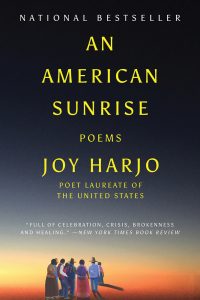
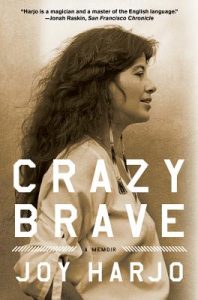
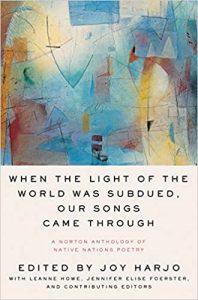


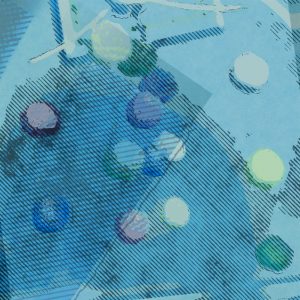
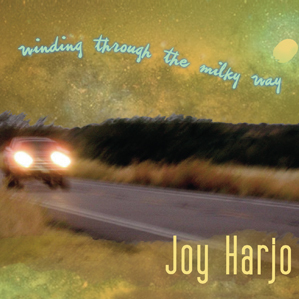

Reflections